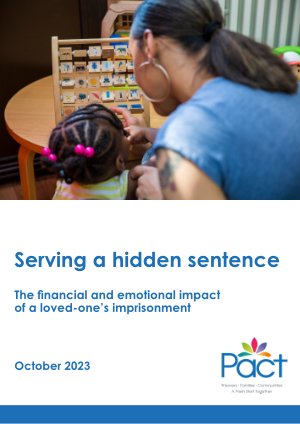By Prison Advice and Care Trust
The financial impact of imprisonment Family members are often affected by the loss of a partner’s income, coupled with the extra costs associated with staying in touch with and supporting their loved-one. 38% said that they spent a quarter or more of their monthly income supporting a loved-one in prison. 71% said that they spent two days a week or more supporting their loved-one. More than half said that they are finding it difficult or very difficult to pay for some of the basics, including being able to afford food (49%), heating (50%) and clothes / shoes (68%). Many said that it was difficult or very difficult to do a range of other things that other families would do, including social activites, such as going out (72%) and being able to afford transport (61%). 34% were unaware of the Help with Prison Visits scheme set up to support people on low incomes with prison visits and 36% had heard of it but hadn’t applied. 56% said that money had affected their ability to stay in touch with their loved-one.
The emotional impact and social stigma Family members’ health suffers as they struggle to come to terms with the new reality. The stigma associated with imprisonment can often result in them leading a ‘double life’ as they seek to hide or avoid talking about what has happened to their loved-one. 83% said that their mental health was a lot worse or a little worse. 71% said that their physical health was a lot worse or a little worse. 70% said that they had lost relationships with friends and family members because of imprisonment. Only 29% say that they are always open about their loved-one’s time in prison and 46% say that they always or often avoid mentioning where their loved-ones are.
London: Pact (Prison Advice and Care Trust) 2023. 22p.


